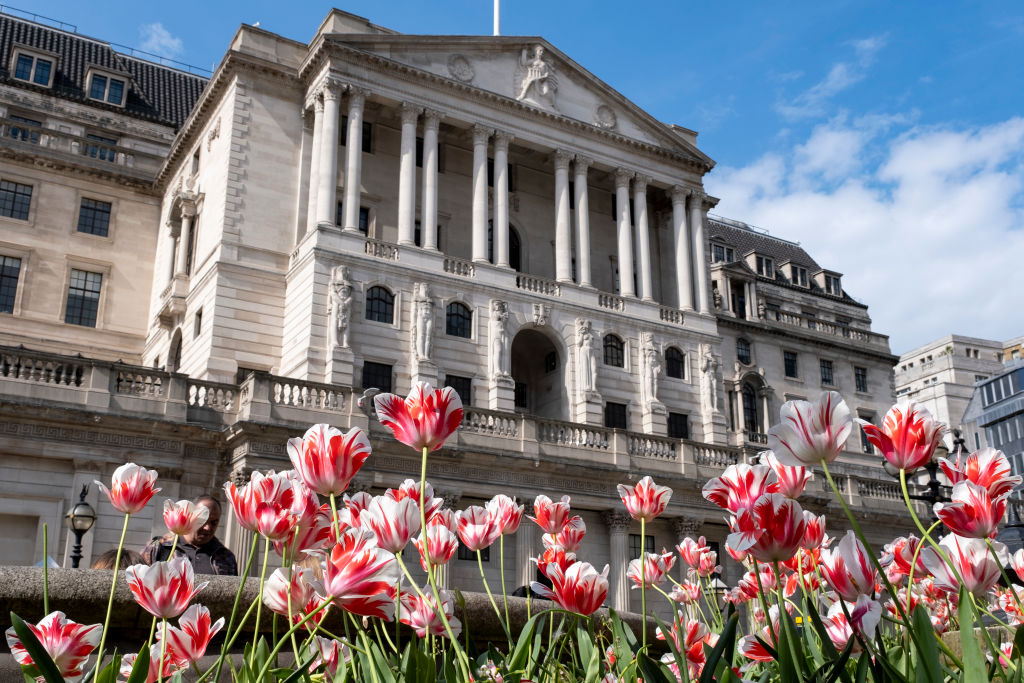UK inflation falls to 17-month low of 6.8%
Official figures show UK inflation fell sharply in July, following the reduction in the energy price cap.


Get the latest financial news, insights and expert analysis from our award-winning MoneyWeek team, to help you understand what really matters when it comes to your finances.
You are now subscribed
Your newsletter sign-up was successful
Want to add more newsletters?

Twice daily
MoneyWeek
Get the latest financial news, insights and expert analysis from our award-winning MoneyWeek team, to help you understand what really matters when it comes to your finances.

Four times a week
Look After My Bills
Sign up to our free money-saving newsletter, filled with the latest news and expert advice to help you find the best tips and deals for managing your bills. Start saving today!
UK inflation has slowed to its lowest level in 17 months thanks to falling gas and electricity bills.
The Consumer Prices Index (CPI) rose by 6.8% in the year to July, down from 7.9% in June, according to the Office for National Statistics (ONS).
MoneyWeek
Subscribe to MoneyWeek today and get your first six magazine issues absolutely FREE

Sign up to Money Morning
Don't miss the latest investment and personal finances news, market analysis, plus money-saving tips with our free twice-daily newsletter
Don't miss the latest investment and personal finances news, market analysis, plus money-saving tips with our free twice-daily newsletter
This is lower than its peak of 11.1% set last October, but well above the Bank of England’s (BoEs) target of 2%.
With inflation still more than three times the BoE’s 2% target, many experts expect the central bank to raise interest rates again in September as it continues to battle UK inflation.
Money markets are suggesting the BoE will announce another 0.25% hike in September, taking its base interest rate to 5.5%, before yet another move higher to 6% by the end of the year.
The BoE has now hiked the cost of borrowing 14 consecutive times to 5.25%, over a period of more than 18 months.
The key drivers of UK inflation
The lower quarterly energy price cap led to a 15% fall in gas and electricity prices in July, which contributed to an overall 0.4% drop in prices compared with last month.
"Prices of gas fell by 25.2% between June and July this year, but rose by 0.1% between the same two months a year ago," the ONS says. "Prices of electricity fell by 8.6% between June and July this year but rose by 0.4% between the same two months a year ago."
At the same time, the cost of services rose to a 30-year record of 7.4% - the highest rate since March 1992.
Meanwhile, food and non-alcoholic beverage prices rose by 0.1% between June and July 2023, compared with a rise of 2.3% between the same two months a year ago. That pulled the annual rate of inflation for food and non-alcoholic beverages to 14.8% in July, down from 17.3% in the year to June.
The retail price index (RPI), which is no longer an official statistic but is used to calculate increases in a range of consumer bills, increased by 9% in the year to July.
Chancellor Jeremy Hunt said: "The decisive action we’ve taken to tackle inflation is working, and the rate now stands at its lowest level since February last year. But while price rises are slowing, we’re not at the finish line.
“We must stick to our plan to halve inflation this year and get it back to the 2% target as soon as possible.”
Core inflation stubbornly high
Core inflation - which strips out energy, food, alcohol and tobacco - remained at 6.9% in July, which is likely to be of concern to the BoE.
Oliver Blackbourn, multi-asset portfolio manager at Janus Henderson Investors, warns that core inflation “remains stubbornly high”,
“This presents a headache for the BoE as it will want to see this less volatile measure decline to suggest that cost pressures are sustainably returning to target,” he says.
“Core inflation suggests a stickier underlying inflation dynamic as services cost growth continued to accelerate,” he adds.
Ruth Gregory, deputy chief UK economist at Capital Economics, says with wage growth and services inflation both stronger than the BoE had expected, its decision makers would look to raise rates from 5.25% to 5.5% in September.
The figures were released a day after data showed wages are growing at the fastest pace since records began. Total pay grew by 8.2% in the three months to June compared with a year earlier, according to the ONS, while regular pay rose 7.8%.
The Institute for Public Policy Research (IPPR) warns that although inflation has fallen, the UK now faces a high risk of recession.
“It’s good news that headline inflation is lower, especially with energy bills coming down, but there is a very real risk that a recession may soon overtake price rises as the main economic concern,” says George Dibb, head of IPPR’s Centre for Economic Justice.
Paula Bejarano Carbo, an associate economist at the National Institute of Economic and Social Research, says: “We have yet to see a turning point in the underlying rate of inflation, which remains stagnant at around 7%.”
Join us at the MoneyWeek Summit on 29.09.2023 at etc.venues St Paul's, London.
Tickets are on sale at www.moneyweeksummit.com
MoneyWeek subscribers receive a 25% discount.
Get the latest financial news, insights and expert analysis from our award-winning MoneyWeek team, to help you understand what really matters when it comes to your finances.

Pedro Gonçalves is a finance reporter with experience covering investment, banks, fintech and wealth management. He has previously worked for Yahoo Finance UK, Investment Week, and national news publications in Portugal.
-
 Should you buy an active ETF?
Should you buy an active ETF?ETFs are often mischaracterised as passive products, but they can be a convenient way to add active management to your portfolio
-
 Power up your pension before 5 April – easy ways to save before the tax year end
Power up your pension before 5 April – easy ways to save before the tax year endWith the end of the tax year looming, pension savers currently have a window to review and maximise what’s going into their retirement funds – we look at how
-
 Why Scotland's proposed government bonds are a terrible investment
Why Scotland's proposed government bonds are a terrible investmentOpinion Politicians in Scotland pushing for “kilts” think it will strengthen the case for independence and boost financial credibility. It's more likely to backfire
-
 How have central banks evolved in the last century – and are they still fit for purpose?
How have central banks evolved in the last century – and are they still fit for purpose?The rise to power and dominance of the central banks has been a key theme in MoneyWeek in its 25 years. Has their rule been benign?
-
 UK to have highest inflation among advanced economies this year and next, says IMF
UK to have highest inflation among advanced economies this year and next, says IMFThe International Monetary Fund (IMF) says it expects inflation to remain high in the UK, while lowering economic growth forecasts for 2026.
-
 Is Britain heading for a big debt crisis?
Is Britain heading for a big debt crisis?Opinion Things are not yet as bad as some reports have claimed. But they sure aren’t rosy either, says Julian Jessop
-
 'Britain is on the road to nowhere under Labour'
'Britain is on the road to nowhere under Labour'Opinion Britain's economy will shake off its torpor and grow robustly, but not under Keir Starmer's leadership, says Max King
-
 'Governments are launching an assault on the independence of central banks'
'Governments are launching an assault on the independence of central banks'Opinion Say goodbye to the era of central bank orthodoxy and hello to the new era of central bank dependency, says Jeremy McKeown
-
 Why investors can no longer trust traditional statistical indicators
Why investors can no longer trust traditional statistical indicatorsOpinion The statistical indicators and data investors have relied on for decades are no longer fit for purpose. It's time to move on, says Helen Thomas
-
 Live: Bank of England holds UK interest rates at 4.5%
Live: Bank of England holds UK interest rates at 4.5%The Bank of England voted to hold UK interest rates at their current level of 4.5% in March, as widely anticipated, after inflation rose to 3% in January